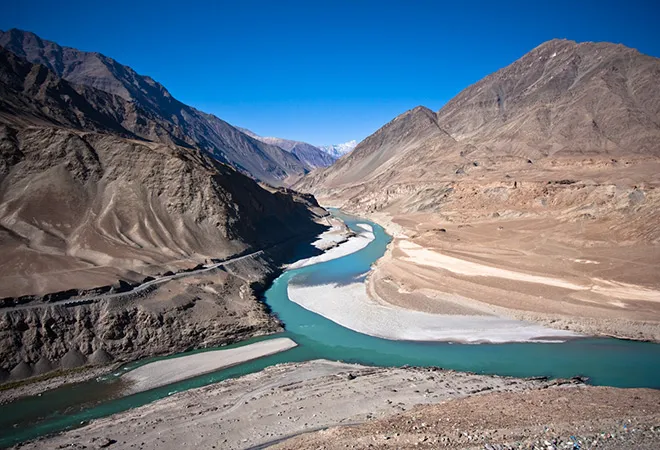NEW DELHI: The International Court of Arbitration lacks any legal authority to make pronouncements on the Indus Waters Treaty between India and Pakistan, as New Delhi has never recognised the legitimacy of the court, India’s foreign ministry said on Thursday.
On August 12, a ruling from the Court of Arbitration last week backed Pakistan, stating that India must adhere to the Indus Waters Treaty in the design of new hydroelectric power stations on rivers that flow west into Pakistan.
According to media reports, the binding award, issued on August 8, 2025, follows a case Pakistan brought to the court in 2016. The court emphasised that arbitration awards and decisions from Neutral Experts are final and binding for both parties.
The dispute centred around India’s plans to build run-of-river hydroelectric plants on the Western rivers, including the Indus, Jhelum, and Chenab. Pakistan contended that India’s designs violated IWT provisions, while India did not participate in the proceedings but was kept informed and invited to join at every stage.
The Court of Arbitration ruled that India must strictly adhere to IWT provisions regarding the design of hydroelectric plants, rejecting any “best practices” approach that India might consider. The court also set clear design restrictions on dams and associated facilities to ensure Pakistan’s downstream water rights are protected. This includes prohibiting low-level outlets of water unless necessary for technical reasons and restricting the use of gated spillways.
Furthermore, the court specified that the pondage required for hydroelectric plants must be calculated based on the minimum mean discharge over a seven-day period, limiting the amount of water that can be stored. It also restricted the freeboard—the height needed to prevent dam overtopping—to the minimum required for dam safety.
The ruling also recommended that India and Pakistan collaborate from the early stages of any new hydroelectric plant planning to address any concerns Pakistan may have regarding dam designs.
Although the court ruled in favour of Pakistan on the flow of water, the specific cases involving India’s Ratle and Kishanganga dams are yet to be resolved and will be addressed in future proceedings.
Experts called the Court of Arbitration’s decision a significant victory for Pakistan, reaffirming its water rights under the IWT. Former Indus Water Commissioner Jamaat Ali Shah emphasised that India’s move to hold the IWT in abeyance was rejected by the court, which upheld Pakistan’s right to water from the Western rivers.




